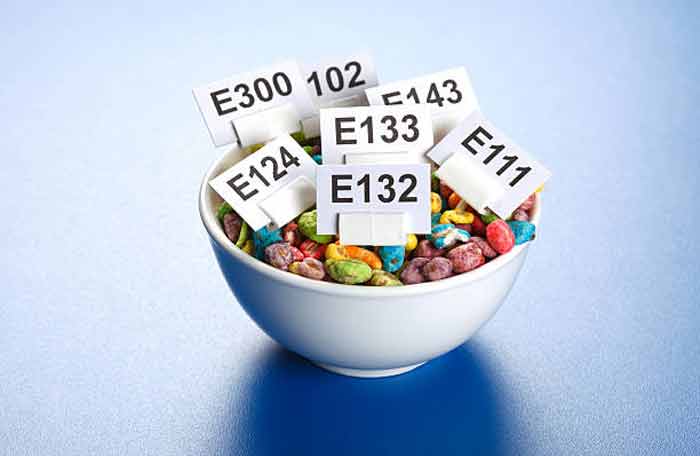Using Food Additives and Preservatives in your food can have a number of benefits. These include the ability to prevent harmful side effects and maintain the nutritive value of your food. In addition, they can enhance the flavor of your food.
Preservatives

During processing, food manufacturers add preservatives to food to keep it fresh and edible for longer periods. Food preservatives act on the enzymes and oxygen in food and slow the process of spoilage. They also act as antimicrobials. Using these substances can extend the shelf life of food and prevent foodborne illness.
Some common types of food preservatives include salt, sugar, vinegar, and alcohol. Other additives include coloring agents, flavorings, emulsifiers, and nutritional supplements. These additives may be added to increase shelf life or to improve texture or taste.
Antioxidants are another group of food additives. Antioxidants can help prevent fats from going rancid. They also help cut fruits and oils from turning brown. Antioxidants also act as free radical scavengers. Antioxidants include butylated hydroxytoluene (BHT), tertiary butylhydroquinone (TBHQ), and sulfur dioxide. Antioxidants are widely used to prevent bacterial growth, protect against food poisoning, and prevent oils from going rancid.
Other common types of food preservatives include sulfites. Sulfites are compounds that form sulfurous acid in aqueous solutions. Sulfites are used to preserve fruits, some vegetables, and dried fruits. However, the FDA has banned the use of sulfites in foods containing vitamin B1 and is still evaluating other uses.
Flavor enhancers
Adding flavor enhancers to your diet may help boost your appetite, improve your taste buds, and help maintain your health. In fact, a new study suggests that it may help your body regulate its own weight, as well.
Adding flavor enhancers to your diet can also reduce the amount of sodium you consume. The World Health Organization estimates that the average person consumes 9-12 grams of salt per day. Adding flavor enhancers to your diet, such as MSG, can help you enjoy your food while reducing the amount of sodium in your diet.
In a study conducted in the Philippines, researchers measured the efficacy of adding flavor enhancers to food in elderly people. They found that the effects of flavor enhancers on elderly people’s diet were both positive and significant.
The study used a parallel group intervention design. During the study, subjects were randomly assigned to a control group or a flavor group. Before the study began, they were assessed on their food intake, anthropometry, and quality of life. A paired t-test was used to compare the results of both groups.
Improve or maintain nutritive value
Using a food additive to improve or maintain nutritive value is nothing new. They are used for a variety of reasons, including to maintain palatability, enhance flavour, improve texture, and extend the life of a food product.
The best part about these little wonders is that they are usually in tiny quantities. A food additive may be a sweetener, an antioxidant, a colouring agent, or an ingredient in a food supplement. In the United States, the Food and Drug Administration (FDA) has created a list of approved food additives. Interestingly, these are similar to those in the European Union.
While the benefits of using a food additive to improve or maintain dietary nutritive value are obvious, consumers should take the time to understand exactly what they are being fed. Food additives are not without their drawbacks, however, and it’s important to remember that they’re not created equal. Some are harmful to human health and can even spell the end for an otherwise healthy diet.
Prevent harmful side effects
Whether you’re concerned about the safety of food additives or are simply trying to maintain a healthy diet, there are some general practices that you can follow to help prevent harmful side effects. These practices include avoiding processed foods, using fresh or frozen fruits and vegetables, washing your hands before preparing food, and incorporating more whole foods into your diet.
Food additives are chemicals that are added to food to improve the taste and appearance of the food, as well as the safety of the food. Some of these chemicals may have harmful side effects, but there are also additives that are safe for most people to eat.
The Food Standards Agency in the UK regulates the use of food additives. It maintains a list of approved additives, which are allowed to be used in foods. If the rules are not followed, the Food Standards Agency will take legal action.
Sussmon:
Some food additives have been linked to serious side effects, such as life-threatening botulism. These effects may occur when the additives are absorbed into the body.

